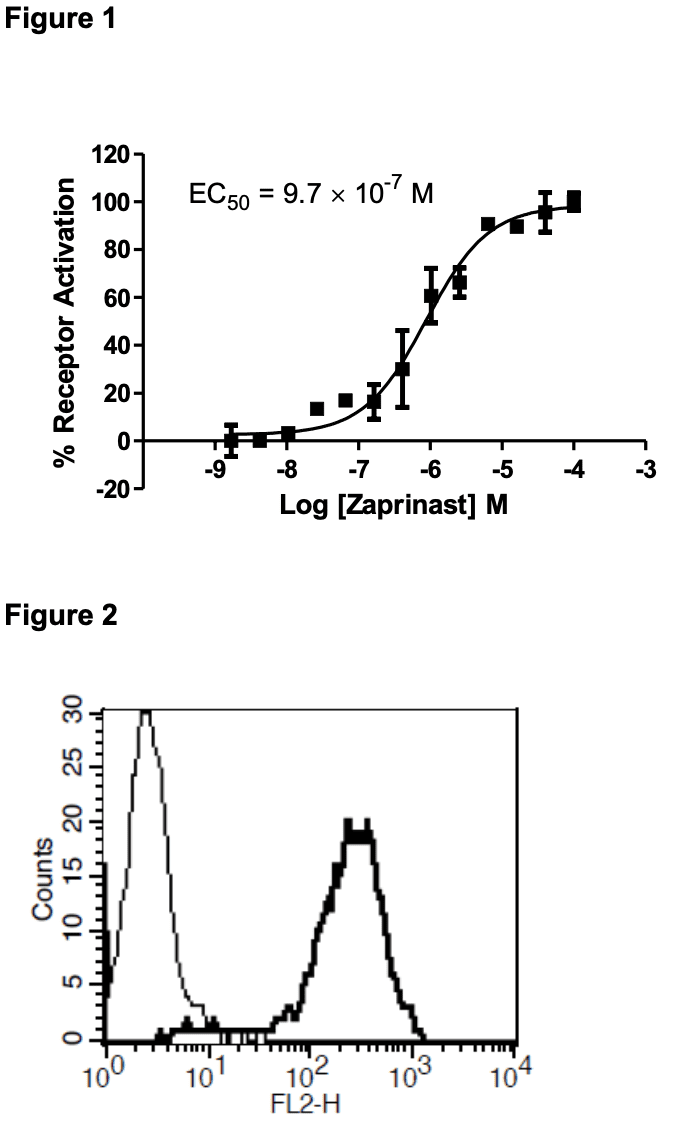Product Information
Catalog Number:
Cm1096-1
Lot Number:
Cm1096-1-081318
Quantity:
1 vial (2 x 106) frozen cells
Freeze Medium:
Cellbanker 2 (Amsbio 11891)
Host cell:
CHO-K1
Transfection:
Expression vector containing full-length full-length mouse GPR35 cDNA (GenBank Accession Number: BC027429) with FLAG tag sequence at N-terminus
Recommended Storage:
Liquid nitrogen upon receiving
Propagation Medium: DMEM/F12, 10% FBS, 10 µg/mL puromycin
Stability:
In progress
Data Sheet
Background: GPR35 is an orphan receptor and expressed in various tissues including stomach, gastrointestinal tissues, and several types of immune cells. Up- regulation of GPR35 has been found in human mast cells upon stimulation with IgE antibodies, human macrophages treated with the environmental contaminant polycyclic aromatic hydrocarbon benzo[a]pyrene, failing heart cells, and gastric cancer cells. Known agonists of the orphan receptor GPR35 are kynurenic acid, zaprinast, 5-nitro-2-(3-phenylproplyamino) benzoic acid, and lysophosphatidic acids.
Application: Functional assays

Figure 1. Dose-dependent inhibition of forskolin-stimulated intracellular cAMP accumulation upon treatment with ligand, measured with MultiscreenTM TR-FRET cAMP 1.0 No Wash Assay Kit (Multispan MSCM01). Figure 2. Receptor expression on cell surface measured by flow cytometry (FACS) using an anti-FLAG antibody. Thin line: parental cells; thick line: receptor-expressing cells.
References:
Wang JH et al. (2006) Kynurenic Acid as a Ligand for Orphan G Protein-coupled Receptor GPR35. J Biol Chem 281:22021-22028.
MacKenzie1, AE, et al. (2011) GPR35 as a novel therapeutic target. Frontiers in Endocrinology, 2:1-10.
Zhao PW, et al. (2010) Targeting of the Orphan Receptor GPR35 by Pamoic Acid: A Potent Activator of Extracellular Signal-Regulated Kinase and beta-Arrestin2 with Antinociceptive Activity. Mol Pharm 78:560–568.
